Editing ain’t just editing. An editor looks at a manuscript from many different points of view. They are passionate about prose, wild about words and rabid readers who value strong, tight and beautiful writing. This means a variety of roles are required to ensure the best words hit the page at every turn.
Teacher
A good editor will strive to make their clients better writers. They will pick up the writer’s weaknesses and idiosyncrasies and explain why they are suggesting the change or explain the grammar rule. If the writer is smart, they will take note and learn how to use punctuation and tighten writing after every edit. Editors welcome questions and love getting into the weeds of words!
Product Tester
Some editors specialize in manuscript assessment and their sole job is to check the overall structure of the text, but any good editor will keep an eye on the big picture. As the writer, you have the storyline in your head, the reasoning, the backstory. As a first or early reader, the editor will see if this has been translated onto the page. Glaring or even minor inconsistencies will be obvious. They will fall into plot holes and (hopefully!) give you an idea of how to get out. They will want to learn more about an underdeveloped character or question an action that doesn’t make sense.
Correction Officer
Sounds scary, and it is a strict process! Here the editor wields her red pen (or more likely track changes) and picks the text apart. A huge chunk of an editor’s job is to make sure the grammar, punctuation, syntax, and word choice are correct. It’s not always pretty. As Ernest Hemingway describes the ‘bleeding carcass’ being returned from his editor. Don’t worry. As mentioned in point 1, the editor is a teacher and will offer corrections to the manuscript. Hopefully, it won’t be streaks of red slashes for the writer to work through alone. The editor will suggest different ways of wording a sentence or organising a paragraph. They will make sure sentences and clauses agree, correct conventions are used and that the pesky apostrophes are in the right places.
Chief Navigation Officer
An editor makes sure your document is well laid out and easy to navigate. Editors will be able to work with Styles, using appropriate headings, a contents page and references. They will help split chapters, make page breaks and even suggest adding white space to make the text more digestible.
Once an editor has whipper-snipped a clear path through your writing, they may also act as a guide in the next step. An editor will be familiar with the publishing industry and may be able to help you to pitch to publishers or self-publish.
Cheerleader
Your editor will often be your biggest fan. After all, it’s not only your creativity that ends up in the book but also the spit and polish provided by the editor. A good editor will have a firm hand with your manuscript but should be gentle with your feelings. Putting your writing out there can be a vulnerable thing to do. An editor is a trusted first step and should be respectful of the hours of keyboard pounding, brain wrestling and word wrangling that took place.
Once the book is finished or published, expect your editor to be waving the biggest, brightest pompoms!

Guest Post Author: Karen Peradon
This was a guest post written by Author, self-publishing guide and expert book editor Karen Peradon at Red Feather Publishing. If you’re in need of a good editor who offers all the bells and whistles – get in touch!
Contact Karen at www.redfeather.com.au

